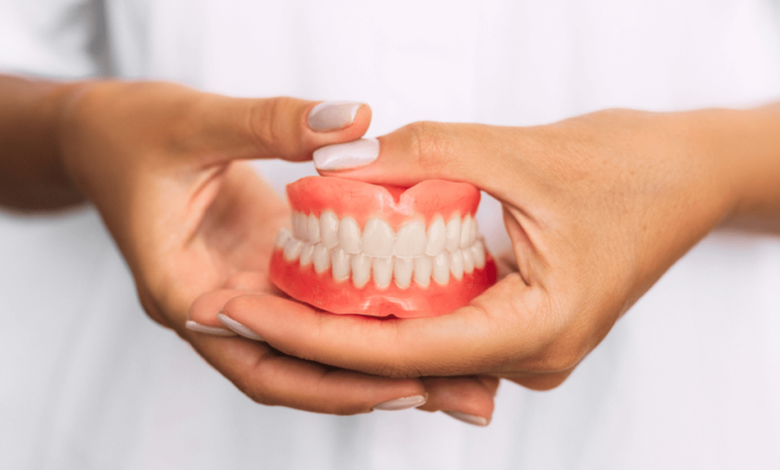Everything You Need to Know About Getting Dentures

Tooth loss can happen to anyone, whether due to age, injury, or dental disease, and it often leads to a crucial decision: finding the right dentures. For many, this step marks the beginning of renewed confidence, comfort, and quality of life. Choosing and maintaining dentures can seem overwhelming at first, but understanding your options and what to expect will make the journey much smoother. This guide will walk you through everything you need to know about getting dentures, from types and fitting to care and long-term maintenance. If you’re researching Canberra dentures, this overview applies to anyone exploring quality denture options and care.
Understanding Dentures and Their Benefits
Dentures are custom-made prosthetic devices designed to replace missing teeth and restore both function and appearance. They do much more than fill empty spaces — they help you eat comfortably, speak clearly, and smile with confidence. Well-fitted dentures can even help maintain the natural structure of your face, supporting your cheeks and lips to prevent a sunken look that can occur after tooth loss.
Beyond aesthetics, dentures contribute to oral health by preventing nearby teeth from shifting out of place and ensuring even bite pressure across the mouth. Whether you’re replacing a few missing teeth or a full set, dentures offer an affordable and effective way to regain everyday comfort and self-assurance.
See also: How Sleep Patterns Affect Mental Health in Teens
Types of Dentures Available
Not all dentures are the same. Understanding the different types will help you find the option that best fits your lifestyle and dental needs.
Full Dentures:
These replace all teeth on either the upper or lower arch (or both). They rest directly on the gums and are crafted for a natural, balanced look.
Partial Dentures:
If you still have some healthy natural teeth, partial dentures fill in the gaps. They often use metal or acrylic clasps to anchor securely to existing teeth.
Implant-Supported Dentures:
This option uses titanium implants in the jawbone to secure dentures. They offer greater stability and prevent slippage when eating or talking.
Flexible Dentures:
Made from softer, lightweight materials, flexible dentures bend slightly for a comfortable, secure fit. They’re especially suitable for people with sensitive gums or new wearers adjusting to dentures.
Each type has its own advantages, and a dental professional can help you decide which best suits your oral health, comfort level, and budget.
What to Expect During the Denture Process
Getting dentures involves several steps, each designed to ensure your final set fits perfectly and looks natural. While the process can take a few weeks, the results are well worth it.
- Initial Consultation:
Your dentist will assess your oral health, discuss your goals, and take detailed measurements or digital scans of your mouth. - Impressions and Try-Ins:
Custom impressions are made to shape your new dentures. You may also try a temporary version to test the fit and appearance before final fabrication. - Fabrication:
Skilled technicians craft your dentures in a dental lab, matching the color and shape of your natural teeth. - Fitting and Adjustments:
During your first fitting, your dentist checks bite alignment and comfort. Minor adjustments may follow as your mouth adapts to the new appliance.
A short adjustment period is normal — it may feel different at first, but your mouth will adapt quickly. Those researching canberra dentures or any high-quality denture services should look for clinics that prioritize comfort and offer follow-up appointments for fine-tuning.
Caring for Your Dentures
Proper care ensures your dentures stay clean, comfortable, and long-lasting. Here are a few best practices:
- Clean Daily: Use a soft brush and non-abrasive denture cleaner. Avoid standard toothpaste, which can scratch the surface.
- Soak Overnight: Most dentures need moisture to keep their shape. Place them in a dentist-approved soaking solution when not in use.
- Handle Carefully: Dentures are durable but can still break if dropped. Clean them with a soft towel or in a basin of water.
- Regular Checkups: Visit your dentist regularly for adjustments and oral health checks. Even small changes in your gums can affect how dentures fit.
If you experience soreness, slipping, or cracks, don’t ignore the issue. Prompt professional adjustments can restore comfort and prevent irritation.
Conclusion
Dentures are more than just replacement teeth: they’re a pathway to renewed confidence, better function, and an improved quality of life. Understanding your options, the fitting process, and how to care for them can make your experience smooth and rewarding. With the right guidance and ongoing care, your dentures can help you enjoy a natural smile and live life to the fullest for years to come.


